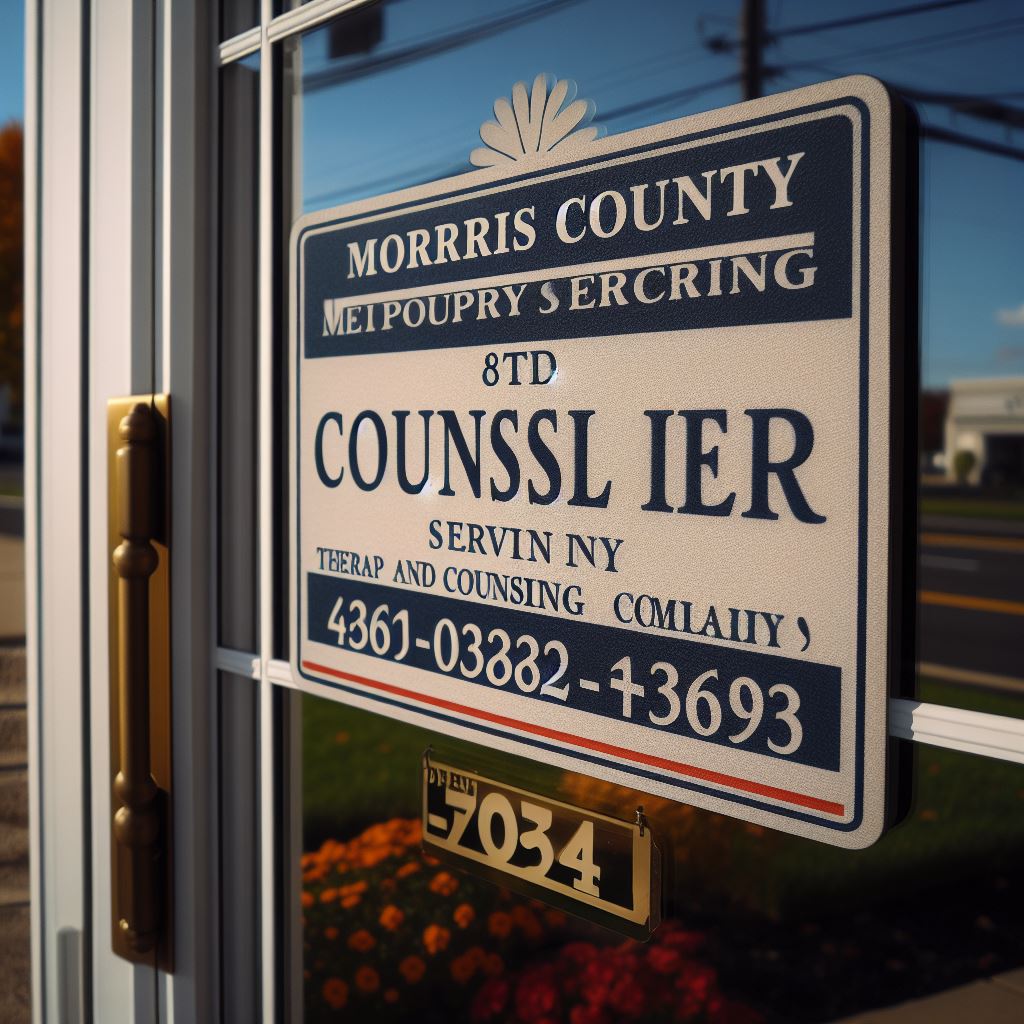Depression is a complex mental health condition that affects many individuals around the world, including those in Morris County, NJ. It is characterized by persistent feelings of sadness, hopelessness, and a lack of interest or pleasure in activities. Understanding the cultural and societal context of Morris County, NJ is crucial when addressing depression, as stigma and misconceptions about mental illness can influence one’s willingness to seek help. In a society that values resilience and hard work, admitting to struggling with depression can be particularly challenging.
In Morris County, NJ, mental health awareness is on the rise, yet it’s essential to recognize the barriers that may prevent individuals from seeking assistance. The pressure to succeed and maintain a facade of wellbeing can deter people from acknowledging their struggles. However, it’s important to remember that depression is a medical condition, not a sign of weakness, and it requires professional support and treatment for improvement.
Mental Health Matters – Make it a Priority! If you or a loved one in Morris County, NJ are ready to begin regaining autonomy over your health and well-being, know that we’re here for you. Let us guide you through your recovery journey and enable you to lead the happy, healthy, and fulfilling life you deserve. For those seeking help outside of Morris County, NJ, our services in New Jersey are available. Contact us at truelifecarementalhealth.com for Mental Health Services.
With the right support, individuals can manage their symptoms effectively. As Morris County, NJ continues to advance its mental health resources, knowing where to seek help for depression in the local context becomes increasingly accessible. The following sections will provide a guide to the various resources available for those looking to take the first steps towards healing.
Initial Steps to Take When Facing Depression

Taking the first step towards addressing depression is often the most challenging yet most crucial part of the journey to recovery. If you’re in Morris County, NJ and suspect that you or someone close to you is experiencing depression, it’s important to begin by acknowledging the problem. This can involve self-reflection and accepting that your feelings are valid and deserve attention.
Start by confiding in someone you trust, whether it’s a family member, friend, or colleague. Sharing your feelings can provide immediate relief and can be the catalyst for seeking professional help. It’s also beneficial to engage in self-care practices such as maintaining a balanced diet, regular physical activity, and adequate sleep, which can have a positive impact on your mood and overall well-being.
Documenting your thoughts and feelings in a journal can help you understand your emotions better and serve as a tool for communicating with healthcare professionals. Additionally, researching depression and its symptoms can empower you with knowledge and help you realize that you are not alone in this struggle.
It’s essential to remember that while these initial steps are helpful, they are not a substitute for professional treatment. The next section will delve into the various support systems and professional services available in Morris County, NJ, highlighting how to take the crucial next step of seeking professional help for depression.
Professional Mental Health Services in Morris County, NJ

For those grappling with depression in Morris County, NJ, a wide range of professional mental health services is available to provide the necessary support and treatment. Recognizing when to seek professional help is key, and there are several indicators, such as persistent sadness, loss of interest in activities, or changes in appetite and sleep patterns, that signal the need for expert intervention.
Morris County, NJ offers both public and private healthcare options for mental health treatment. The public healthcare system includes restructured hospitals with specialized psychiatric departments, such as the Institute of Mental Health (IMH), which provides comprehensive psychiatric services. Community-based services like polyclinics also offer referrals to mental health specialists when required.
In the private sector, individuals can seek help from psychiatrists, psychologists, and counselors who offer therapy and medication management. These services can be found in private clinics and hospitals throughout the island. It’s important to choose a mental health professional whose approach aligns with your needs and preferences, as the therapeutic relationship is crucial for successful treatment outcomes.
Moreover, Morris County, NJ is home to several non-profit organizations and support groups that provide counseling, workshops, and group therapy sessions. They create safe spaces for individuals to share their experiences and learn coping strategies from peers facing similar challenges.
When seeking professional mental health services, it is advisable to consider factors such as the therapist’s qualifications, treatment modalities offered, and whether the services are covered by insurance or Medisave. The following section will discuss the importance of support networks and how they complement professional treatment, adding another layer of support for those battling depression.
Community and Support Groups for Depression
Community and support groups play a pivotal role in the mental health landscape of Morris County, NJ, offering a sense of solidarity and shared experience for individuals coping with depression. These groups provide a platform for emotional support and practical advice, often facilitated by trained volunteers or professionals who have a deep understanding of the challenges faced by those with depression.
One of the key benefits of joining a support group is the realization that one is not alone in their struggles. Engaging with others who have similar experiences can be validating and comforting. Moreover, these groups can be a source of valuable information about coping strategies and resources that have proven helpful to others.
Many community centers and religious organizations in Morris County, NJ host support groups that cater to specific needs, including groups for youth, the elderly, and caregivers of individuals with mental health conditions. These are designed to address the unique issues faced by each demographic, providing tailored support and fostering a sense of community.
Additionally, online forums and social media platforms have emerged as accessible spaces for individuals seeking support, allowing for anonymity and flexibility. Such digital platforms can be particularly beneficial for those who are not yet ready to attend in-person meetings or who prefer the convenience of accessing support from their own homes.
Participating in community and support groups can significantly enhance the mental health journey by complementing professional treatment. They encourage the sharing of personal experiences and provide emotional support, which can be instrumental in building resilience and fostering a sense of empowerment among participants. In the next section, we will explore the role of holistic approaches in managing depression, emphasizing the importance of a well-rounded treatment plan.
Public Health Institutions and Depression Treatment

In Morris County, NJ, public health institutions constitute a fundamental component of the depression treatment infrastructure. These government-funded hospitals and clinics are equipped with psychiatric departments that offer clinical assessments, medication management, and therapy services. The Institute of Mental Health (IMH), Morris County, NJ’s flagship mental health establishment, provides comprehensive psychiatric services and spearheads research and education in the field.
Public health institutions offer an array of treatment options catered to individual needs, including outpatient and inpatient services. Outpatient services allow individuals to receive treatment and counseling sessions while maintaining their daily routines. In more severe cases, inpatient services may be recommended, providing around-the-clock care and intensive support.
Another advantage of seeking help from public institutions is the subsidized healthcare costs, making mental health services more accessible to a broader segment of the population. Residents of Morris County, NJ with a referral from a polyclinic can benefit from reduced charges, which helps alleviate the financial burden associated with long-term treatment.
It is worth noting that while public institutions offer high-quality care, they may have longer waiting times due to the high demand for services. Thus, individuals are encouraged to explore various avenues and seek timely assistance. Early intervention is crucial in managing depression effectively and preventing the progression of symptoms.
As we transition to the next section, we will discuss the importance of private mental health practices in providing personalized and immediate care options, complementing the services offered by public health institutions.
Private Therapy Options for Depression Care

For those seeking more immediate or specialized care, Morris County, NJ’s private therapy options offer an alternative pathway for depression treatment. Private psychiatric clinics and counseling centers provide personalized attention and typically have shorter wait times, allowing for quicker access to mental health professionals. These establishments often boast a diverse team of experts including psychologists, psychiatrists, and counselors who work collaboratively to tailor treatment plans to the individual’s unique needs.
Private therapy can range from cognitive-behavioral therapy (CBT) to psychodynamic therapy, with modalities chosen based on the patient’s specific circumstances and preference. Many private practitioners also offer alternative and holistic treatment options such as art therapy and mindfulness practices, catering to those who might prefer non-traditional approaches to mental health care.
While private options can be more costly than their public counterparts, they provide the flexibility of scheduling appointments outside of regular working hours and often ensure greater confidentiality and privacy. Health insurance policies in Morris County, NJ might cover some of these expenses, and it’s advisable to review your plan for mental health benefits.
Mental Health Matters – Make it a Priority! If you or a loved one are ready to begin regaining autonomy over your health and well-being, know that we’re here for you. Let us guide you through your recovery journey and enable you to lead the happy, healthy, and fulfilling life you deserve. For more information on our mental health services, visit truelifecarementalhealth.com.
In conclusion, Morris County, NJ offers a myriad of options for those grappling with depression. From public health institutions to private therapy services, individuals can choose the path that best suits their needs and circumstances. It is essential to take the first step towards healing by seeking the support you need, as every journey to recovery begins with acknowledging the importance of one’s mental health.
















